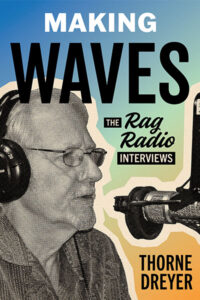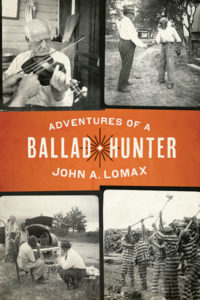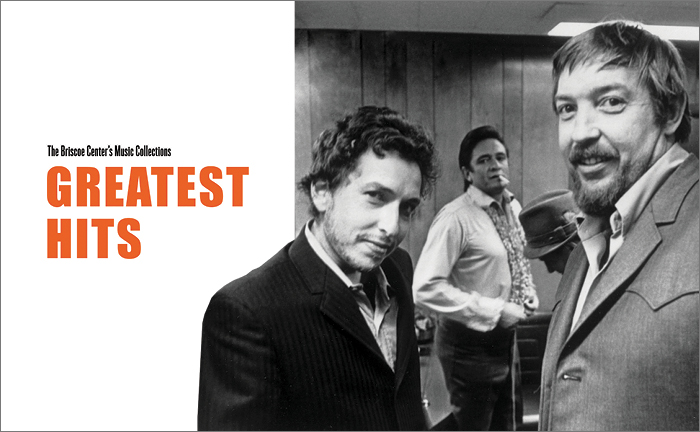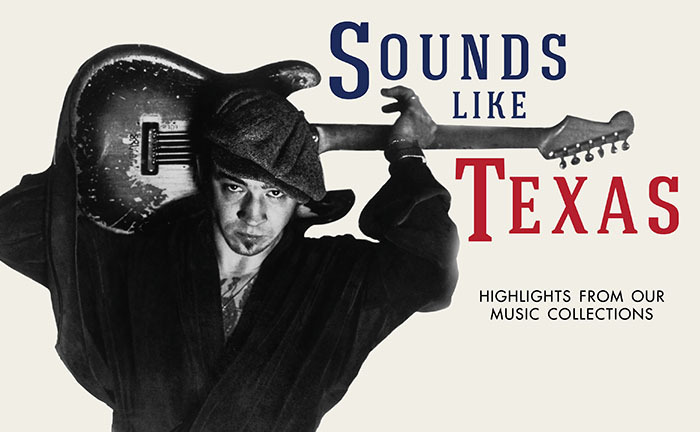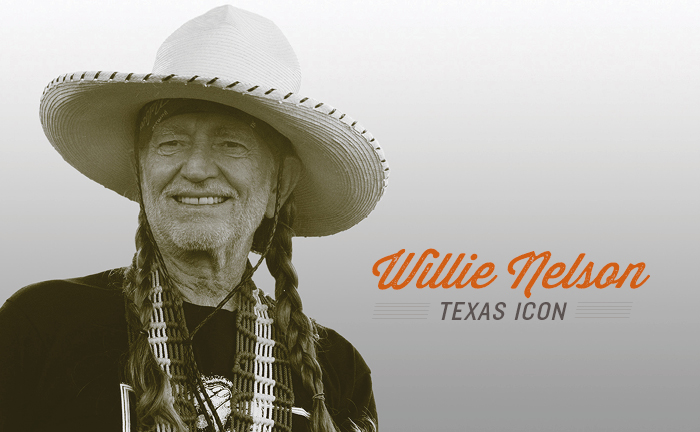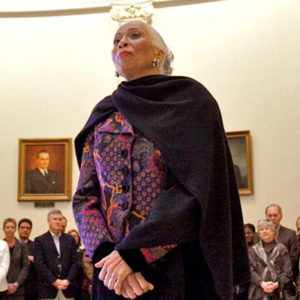The Briscoe Center has long emphasized the development of its music resources as an integral part of its mission to document the historical experience of the American people. Since 1980, the center has built extensive research collections of folk and popular music from Texas and the greater South and Southwest in an effort to document the development of not only different musical styles but also the music industry itself. Those resources have given the center an international reputation as a prime source for music research.
From the field recordings of folklorist John A. Lomax to the business records of legendary Austin music venues the Armadillo World Headquarters and the Soap Creek Saloon, the Briscoe Center has a diverse music collection reflecting the many genres of American music. The Music and Entertainment History collection contains recordings, sheet music, photographs, videos, business records, correspondence, and lyrics in the collections of music figures like folklorist Tary Owens, journalist Townsend Miller, producer Bob Johnston, photographer Tom Wright, and musician Willie Nelson.
Closely allied with the center’s music collections is the Professional Touring Entertainment Industry Archive, a series of collections created in 1995 to document the history of touring entertainment companies and those venues and arenas where acts performed. The holdings embrace virtually the entire twentieth century, with subjects that range from vaudeville shows and concerts to ice shows and Harlem Globetrotters basketball.
Deliberate collecting for the music holdings began around 1980, when the center’s new director, Don Carleton, asked staff archivist John Wheat—a musician and former producer at the university’s National Public Radio affiliate, KUT—to assume responsibility for sound recordings. When Wheat surveyed the holdings, he discovered a significant number of music resources already on the shelves, including the field recordings and ballad search correspondence of legendary folklorist John A. Lomax. The discovery led him to propose that the center’s historical mission include a systematic collection of music.
Music Business

Wheat consulted with colleagues in the music industry and academia and put out the word that the center was seriously collecting; results came quickly. In 1981 the acquisition of a major collection of materials about Texas bluesman Mance Lipscomb set the stage for a collection campaign that would continue throughout the decade. The acquisition of business records related to two of the most important music venues in Austin during the 1970s—the Armadillo World Headquarters and Soap Creek Saloon—soon followed. In the mid-1980s the director of the University of Texas Folklore Center transferred its library to the Briscoe Center, adding a rich collection of Texas and other American field recordings and written materials to the holdings. The Briscoe Center also began building its own in-house Texas Music Collection, which comprises music written or performed by Texans, produced by Texas companies, or about Texas or related themes.
By the 1990s, the music collections had begun to attract more materials to the center. The cultivation of extensive personal and professional relationships with the music community of Austin and beyond, as well as the presentation of exhibits and special programs, helped to heighten public awareness of the Briscoe Center’s resources and to encourage donations of important music research collections. Significant acquisitions during the 1990s included the business archives of Houston producer Huey “Crazy Cajun” Meaux, who launched the careers of Doug Sahm, Freddie Fender, and many others, as well as the archives of Rod Kennedy, founder of the Kerrville Folk Festival and producer of many other music festivals around the state. To those were added extensive collections of commercial recordings from the late Townsend Miller—the Austin music columnist who helped to define the so-called “progressive country” movement—and Ed Ward, a music critic and rock music historian.
Visual Resources

The Briscoe Center also has acquired significant visual resources. Principal among them are the music research collection of the late folklorist Tary Owens, which features extensive video interview and concert footage along with studio recordings of central Texas blues musicians. And the Tara Veneruso Video Collection contains all of the production materials for Veneruso’s feature-length documentary on forty years of Austin music history.
Important photographic collections include the Niles Fuller Collection of Cibachrome color portraits of Austin musicians from the mid-1980s; Burton Wilson’s photographic prints of Austin music from the 1960s to the ’90s; and hundreds of photographs from the extensive talent files of Rod Kennedy, Townsend Miller, and Austin concert venues the Soap Creek Saloon and the Armadillo World Headquarters. Finally, the Texas Poster Art Collection features some two thousand posters and flyers that document the music and cultural life of Austin and other Texas communities, including events at historic venues like the Vulcan Gas Co., Armadillo World Headquarters, Soap Creek Saloon, and Antone’s.
Of particular note is the collection of Texas-born “super producer” Bob Johnston. The head of CBS Records in Nashville who famously brought Bob Dylan to the country music capital for recording sessions, Johnston also produced the legendary prison recordings of Johnny Cash as well as gold and platinum albums for Simon and Garfunkel, Leonard Cohen, and a host of other top stars in American popular music. The Bob Johnston Collection is rich in photographs, talent files, business records, and especially sound recordings, including both commercially produced and unissued studio work. Closely related to the Bob Johnston Collection is the Tom Wright Collection of photographs, recordings, correspondence, and scrapbooks that document Wright’s years as road manager and photographer for music groups that include The Who, the Rolling Stones, Rod Stewart and Faces, Elvis Costello, and the Eagles.
Willie Nelson Collection

Willie Nelson is an American music icon. One of the nation’s premier songwriters, he is able to capture the joys and heartaches of everyday life through eloquent words and memorable melodies. Now in his 80s, Nelson still loves to take his show “on the road again.” With deep ties to the University of Texas through his long friendship with the late Coach Darrell Royal and attorney Joe Jamail, he began donating large amounts of personal artifacts to the Briscoe Center in 2013. Awards, recordings, photographs, posters, letters, and other memorabilia from the Willie Nelson Collection document the many facets of his creative life—from movies to Farm Aid to a very special pair of boots.
Study of the American Spiritual

In the fall of 2005 the center announced a new initiative to promote scholarship, performance, publication, and the collection and preservation of historical materials related to the American spiritual and to other music strongly related to the Black experience in America. Admiral and Mrs. Bobby Inman led the initial funding, and the late mezzo-soprano—and Texas Ex—Barbara Smith Conrad agreed to serve as its national ambassador. The fact that the Briscoe Center was chosen to host this initiative is testament to its long-term commitment to the preservation of American music history.
The center’s music resources now embrace all genres of folk and popular music from Texas and the greater South and Southwest, ranging from traditional cowboy songs to urban hip-hop. The holdings document the business activities of music producers and concert venues, and they encompass a wide range of materials, including commercial and field recordings, photographs, film and video, oral history, books and journals, newspapers, poster art, and printed and manuscript sheet music.
Touring Entertainment
Closely allied with the center’s music collections is the Professional Touring Entertainment Industry Archive, a series of collections created in 1995 to document the history of touring entertainment companies and those venues and arenas where acts performed. Established by Dean Justice, former director of the University of Texas Frank C. Erwin Jr. Special Events Center (1976-1990), the holdings embrace virtually the entire twentieth century, with subjects that range from vaudeville shows and concerts to ice shows and Harlem Globetrotters basketball. The archive is supported by the Society for the Preservation of the Professional Touring Entertainment Industry, which assists the center in identifying and acquiring relevant collections.
Materials in Action

Over the years, the center’s collections have attracted the interest of numerous students, professional scholars, journalists, and media production companies. The latter include major American television networks as well as British and French radio and television networks. Many books and journal articles have been published based on research that was conducted in the center’s music collections, including Nolan Porterfield’s biography of John A. Lomax, The Last Cavalier; folklorist Américo Paredes’s studies of Texas-Mexican border ballads, With His Pistol in His Hand and A Texas Mexican Cancionero; and Mance Lipscomb’s oral autobiography, I Say Me for a Parable. Undergraduates and doctoral students alike continue to mine the center’s resources for research papers and dissertation material, and in conjunction with the recent emphasis on American music studies at The University of Texas Butler School of Music, the center is an ideal resource for both study and teaching.
Adapted from The Collections: The University of Texas at Austin, 2015. Updated 2020.
Our collections inspire our own projects, including books, exhibits, programs, films, and educational materials.
Banner image: Bob Dylan, Johnny Cash, and Bob Johnston in the CBS Nashville studio, ca. 1965. Bob Johnston Papers. Image detail from di_11636.








